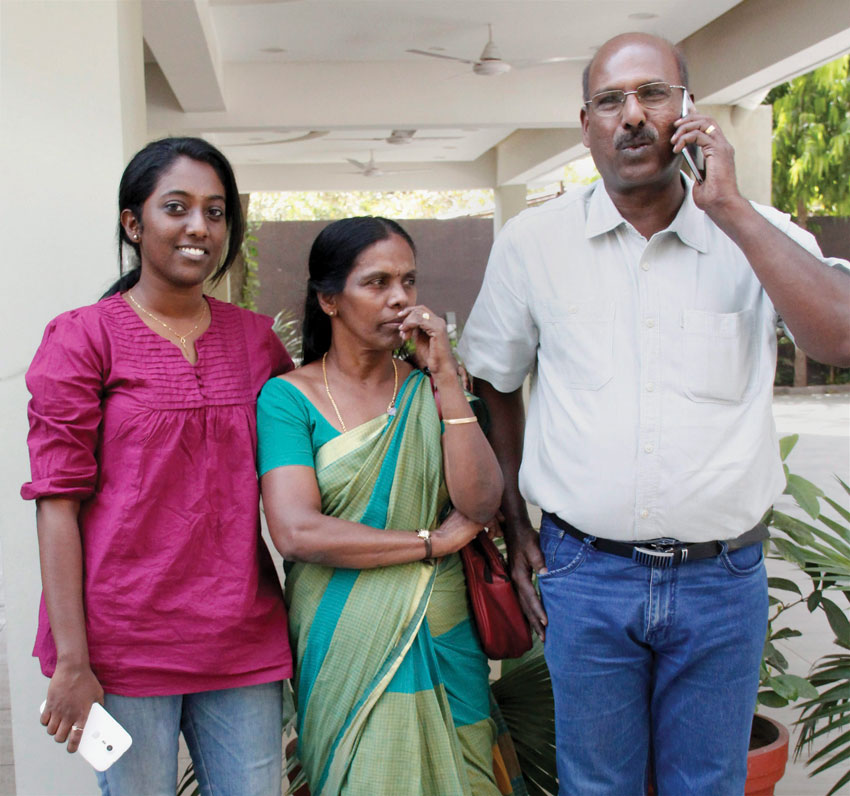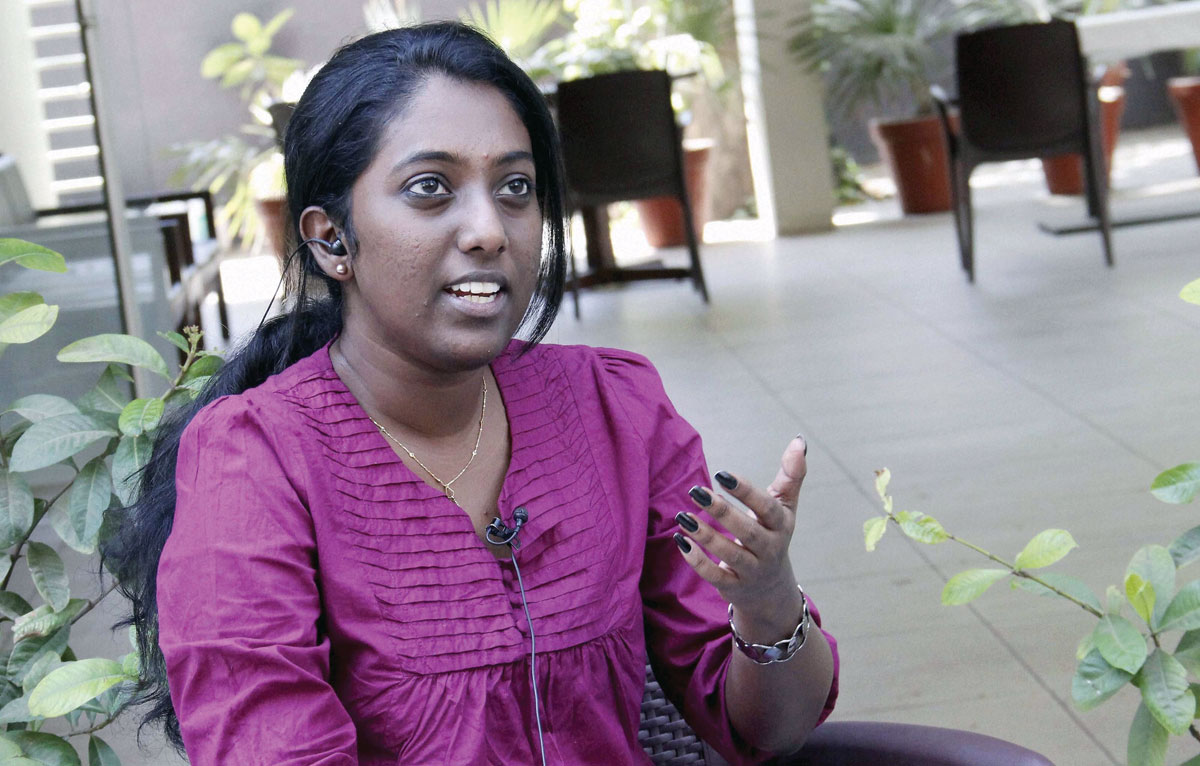PROTECTING FREE SPEECH
Rinu Srinivasan, who was arrested for posting comments on the social networking site against the shutdown in Mumbai following Bal Thackeray’s death reacts after the Supreme Court struck down Section 66 A of the IT Act, in Ahmedabad, Mar. 24. (Press Trust of India)
The quashing of Section 66(A) of the Information Technology Act, 2000 (IT Act) is one of the most significant decisions by the Supreme Court since India attained independence, writes Siddharth Srivastava.
The Supreme Court of India has reaffirmed people’s faith in the country’s apex judicial body meant to protect the rights of citizens, including freedom of speech and expression. The said law and its misuse was without doubt a major infringement of basic rights and dignity of an individual as it permitted the arrest of a person for posting “offensive” or “annoying” content online. Even more glaringly, the offenses under the Act were made cognizable which meant that the police could arrest an individual after registering a complaint, as opposed to powers vesting with a judicial magistrate.
The scrapping of Section 66 (A) also underlines the institutional maturity of the Supreme Court that it has moved with the changing times, given the emerging young, enabled, aspirational and increasingly vociferous population of India. The liberating role of the Internet as opposed to citizens being able to express in the limited TV time or editorial space of mainstream media is well documented and researched.
“We hold the section unconstitutional on the grounds that it takes within its sweep protected speech that is innocent in nature. It is liable to have a chilling effect on free speech and, therefore, has to be struck down,” the SC said in its judgment against Section 66 (A).
“The section made no distinction between mere discussion or advocacy of a particular point of view, which may be annoying or inconvenient or grossly offensive to some, and incitement, by which such words lead to an imminent causal connection with public disorder and security of the state,” the judgment added. The court also rejected the government contention that it would administer the law reasonably. “Governments may come and governments may go but section 66A goes on forever. An assurance from the present government, if even carried out faithfully, would not bind any successor government,” the court said. The SC however, did not quash two other provisions of the IT Act, sections 69A and 79 of the IT Act, that empower the government to block online content, but made a court order mandatory for any third party to ask an intermediary, such as Google or Facebook, to pull it down.

Section 66 (A) was clearly a badly drafted law that did not meet the requisite legislative scrutiny in the Parliament, which is not surprising given the lack of decorum and multiple adjournments in the functioning of India’s apex law-making body. Such Internet censorship betrayed lack of basic understanding of the way the online medium functions by allowing millions to voice concerns, views, spoof, criticize and caricature in a public domain, without being disruptive or violent. Ironically, over the past few years, Section 66A was misapplied most by the state machinery, with police acting on the behest of their political masters to arrest citizens across the country.
Young girls and boys were put behind bars for sharing or liking posts on social media platforms such as Facebook or Twitter that were essentially innocuous and meant no harm. The Act was universally trashed following the arrest in 2012 of two young girls, Shaheen Dhada and Renu Shrinivas, in their early 20s, for voicing a harmless opinion on Facebook on the shutdown of Mumbai due to the passing away of Shiv Sena leader Bal Thackeray. Prior to this, a tweet against then finance minister P. Chidambaram’s son lead to the arrest of Ravi Srinivasan in Pondicherry. The Mumbai police arrested cartoonist Aseem Trivedi for poking fun of politicians and Parliament. A professor in Kolkata was arrested for mailing cartoons of Mamata Banerjee, the chief minister of West Bengal.
In the latest instance in March a young student was arrested in Uttar Pradesh for posting an “objectionable” statement on Facebook, attributing it to local leader Azam Khan. Thankfully, the political and the establishment have welcomed the SC verdict against Section 66 (A). Chidambaram agreed with the court that the section was poorly drafted and made innocent citizens vulnerable. “There could be a case of misuse of freedom of speech. In such cases, ordinary laws should apply. Section 66A was not the answer,” he said.
Welcoming the ruling, information technology minister Ravi Shankar Prasad said Modi government respected freedom of speech and expression and wasn’t in favor of curtailing communication of honest dissent or criticism on social media. “It is a big relief to me and my family. My daughter was accused of posting offensive remarks and was arrested. I don’t think expressing one’s views is a crime. I supported my daughter then and I back her now,” said Farooq Dhada, father of Shaheen, in remarks to the media.


